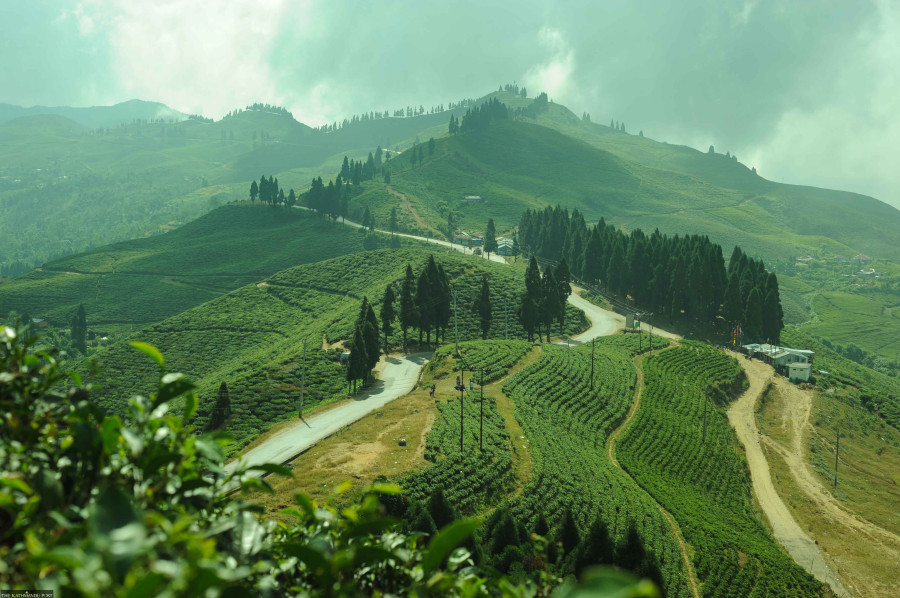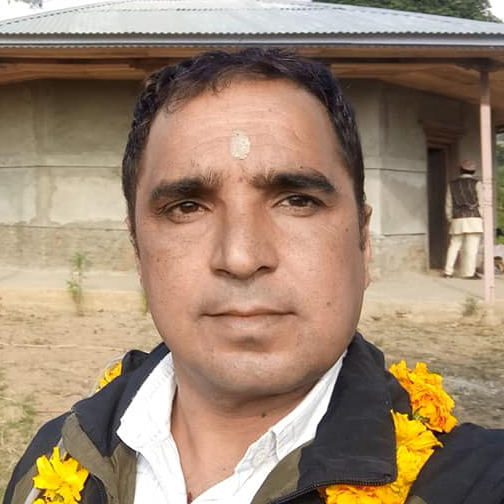Money
Ilam sees hard times ahead as tourists stop coming
If the situation continues, it will drive a large section of the population into unemployment, insiders say.
Biplav Bhattarai
As 2020 got underway, Nepal's hotel industry was at the peak of an expansion frenzy.
Dambar Khadka of Ilam in the eastern part of the country too had been making big plans. He had bought 55 ropanis of land in the ecotourism destination of Kanyam to build a luxury resort.
The Rs1.5 billion hotel would offer a host of recreational activities like casino, shopping mall, park and mini train.
But almost overnight, the tourism industry went into a downward spiral the likes of which entrepreneurs said they had never seen before. Tourism demand plunged with no foreseeable end, and new development came to a screeching halt.
Pause or proceed? Many entrepreneurs like Khadka are in a fix. "My project suffered right after the country was hit by the coronavirus in 2020," Khadka said. "Now, everything has become complicated. There is no end in sight to Covid-19," he said.
Khadka had prepared a master plan and even procured construction materials like iron and steel, cement, gravel and sand to build the resort. He is deeply troubled. “I cannot move forward, and I cannot withdraw from the project.”
Ilam attracts travellers who come to enjoy stunning views of the rising sun. Vacationers, especially from parts of the Tarai and India, head for Ilam to escape the heat of the plains. Celebrated as the queen of the hills, Ilam offers a moderate climate amid tranquil tea plantations.
The history of tea growing in Ilam goes back to 1863, and its gentle green hills covered with tea bushes are prime attractions for tourists.
Ilam Tea Estate, the first in Nepal, along with Kanyam and Antu Tea Estate, draw hundreds of tourists and tea enthusiasts to observe the entire process of tea production—from cultivation, cutting and picking of tea leaves to their processing and sampling.
Like many other tourism hotspots across the country, Ilam’s progress is hindered by lack of infrastructure. Khadka is one of the several entrepreneurs who have seen the opportunity in the eastern hill district. But his plan has been shattered by Covid-19.
Bijay Rai, who has leased a house to run a hotel at Ilam bus park, had just completed a new project when the Covid-19 pandemic brought calamity. He had hoped things would settle down in 2021 after a disastrous 2020.
Rai had spent Rs40 million on the project, and now faces ruin following the second wave of the pandemic. He is wondering how he is going to repay his bank loan.
"The government should launch subsidy programmes to save our investment," he said. “Otherwise we are finished.”
Tourists, mostly domestic, had started coming back to Kanyam and Antu in autumn 2020. The government had withdrawn the lockdown in July, and people had become confident enough to travel and let their wanderlust take over.
Entrepreneurs who had been struggling to pay their repayment instalments, were cheered when visitors reappeared, and they made a good recovery in a short span of time.
But their happiness did not last long. The second wave started in mid-April and peaked in May, and was even more dangerous than the first which has so far killed over 5,000 people.
Hemu Bhujel, a trader from Harkate near Kanyam, said she used to earn around Rs100,000 monthly by selling vegetables and gift items. "With Covid-19 raging again, it has become a difficult life for us," she said.
A string of more than 200 shops selling vegetables and gift items extend from east Pathivara to Fikkal. Tourists buy tea, hard cheese, lollipops and vegetables. The business directly benefits entrepreneurs and farmers in rural areas.
Nearly 100 horse traders in Kanyam and dozens of homestays in Antu have also fallen on hard times due to the declining number of visitors.
As tourist arrivals started drying up due to the pandemic, life has become difficult for everyone.
Rajan Pradhan, general secretary of the Suryodaya Chamber of Commerce and Industry and co-treasurer of the Federation of Hotel Entrepreneurs of Province 1, said it would be a catastrophe if the situation lasted.
"We did not get any relief packages from the government last year," he said. "If the government does not start any relief programmes for entrepreneurs, it will be hard to revive our businesses."
There are 450 hotels in the district that provide 2,300 jobs.
"The situation is becoming worse by the day. If it continues, it will drive a large section of the population into unemployment," said Devi Poudel, president of the Hotel Entrepreneurs' Association of Ilam.
According to the association, last year the district suffered losses amounting to Rs720 million per month. There are 200 hotels with an investment of Rs300,000 to Rs500,000 each, 190 hotels with an investment of Rs10 million to Rs20 million each, and 60 hotels with an investment of Rs10 million to Rs100 million each.




 13.12°C Kathmandu
13.12°C Kathmandu













